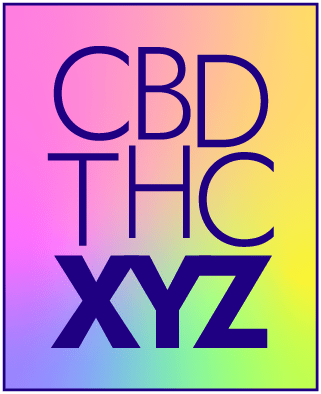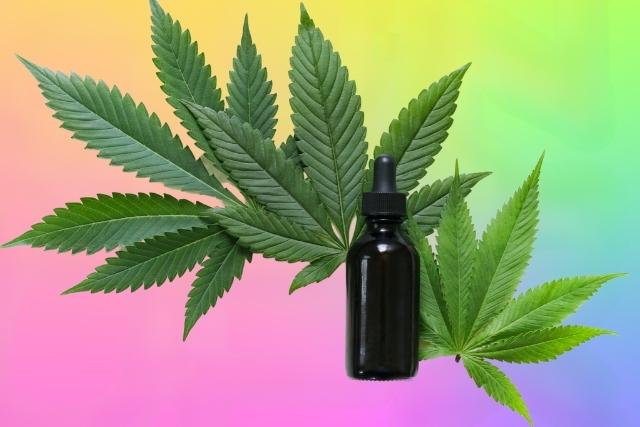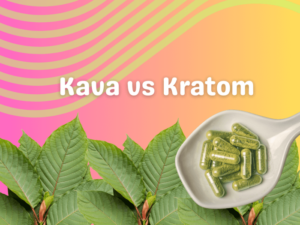Cannabidiol (CBD) has become a buzzword in the world of health and wellness, thanks to its potential therapeutic benefits. However, many people are unaware that CBD is just one of many cannabinoids found in the cannabis plant. One of these lesser-known cannabinoids is cannabidiolic acid (CBDA), which is an acidic precursor to CBD. While CBD has been studied extensively, CBDA is still relatively new to the scene. In this article, we will explore the differences between CBDA and CBD, including their chemical structures, potential health benefits, and how they interact with the body. By the end of this article, you will have a better understanding of CBDA and CBD, and be able to make an informed decision about which cannabinoid may be right for you.
What is CBDA?
Cannabidiolic acid (CBDA) is a fascinating compound that is starting to receive more attention in the scientific community. CBDA is produced by the cannabis plant as a precursor to cannabidiol (CBD), and it is typically found in higher concentrations in raw cannabis than in its heated, or decarboxylated, form.
What makes CBDA unique is that it interacts with the body’s endocannabinoid system differently than CBD. Studies have shown that CBDA can inhibit the COX-2 enzyme, which causes inflammation and pain, and it may also have properties that prevent nausea and seizures. Additionally, CBDA has a higher bioavailability than CBD, indicating that it could be absorbed by the body more efficiently. Although research on CBDA is in its early stages, it has the potential to be a valuable therapeutic agent and a promising area of research for medical professionals and scientists.
Are CBG and CBDA related?
Yes, CBG (cannabigerol) and CBDA (cannabidiolic acid) are two related cannabinoids that are naturally present in the cannabis plant. CBG is known to be a precursor to both CBD and THC, which means it can be converted to either of these cannabinoids through biosynthesis. In contrast, CBDA is an acidic compound that acts as a precursor to CBD, and it is found in raw cannabis plants. The process of decarboxylation is necessary to convert CBDA to CBD. Although both CBG and CBDA are non-intoxicating and have been studied for their potential health benefits, they have distinct chemical structures and properties, which may result in different therapeutic effects.
What are the benefits of CBDA?
CBDA is one of the active compounds found on the raw cannabis plant. It has been shown to potentially offer a variety of functional benefits for our health and bodies. Here are some of the effects that CBDA may have on the body:
Anti-inflammatory
CBDA may have anti-inflammatory properties, which could make it useful in treating conditions that involve inflammation, such as arthritis.
Anti-nausea
Some studies suggest that CBDA may be effective in reducing nausea and vomiting, making it a potential treatment for chemotherapy-induced nausea and other forms of nausea.
Antibacterial
CBDA has been found to have antibacterial properties, which could make it useful in fighting certain types of bacterial infections.
Anti-cancer
Some research suggests that CBDA may have anti-cancer properties and may be effective in slowing the growth of certain types of cancer cells.
Potential use in epilepsy
A 2013 study found that CBDA may have anticonvulsant effects similar to those of CBD, suggesting that it could be useful in treating epilepsy.
It’s worth noting that research on CBDA is still in its early stages, and more studies are needed to fully understand its potential effects on the body

What is CBD?
CBD (cannabidiol) is a natural compound found in the cannabis plant. It is one of over 100 cannabinoids that have been identified in the plant, and it is non-psychoactive, meaning it does not cause the “high” associated with marijuana use.
CBD interacts with the body’s endocannabinoid system (ECS), which is involved in regulating a variety of physiological processes such as mood, appetite, pain sensation, and immune function. Research has shown that CBD may have therapeutic potential in treating a range of conditions, including anxiety, depression, pain, inflammation, epilepsy, and more.
What are the benefits of CBD?
CBD, or cannabidiol, is a natural compound found in the cannabis plant. It has become increasingly popular in recent years due to its potential health benefits. Here are five benefits of CBD:
Pain relief
CBD has been shown to reduce pain and inflammation, making it a promising treatment for conditions such as arthritis, multiple sclerosis, and chronic pain.
Anxiety and depression
CBD has been shown to have anxiolytic and antidepressant effects, making it a potential treatment for anxiety and depression disorders.
Neuroprotective properties
CBD has been shown to have neuroprotective properties, meaning it may help protect the brain from damage and degeneration.
Anti-seizure properties
CBD has been shown to have anticonvulsant properties, making it a potential treatment for epilepsy and other seizure disorders.
Potential cancer treatment
Some studies have suggested that CBD may have anti-tumor properties, making it a potential treatment for cancer. However, more research is needed in this area. Cbda is one of the active compound of the cannabis plant and it may offer some functional benefits for our health and bodies.
What are the Differences between CBDA and CBD?
While both CBD and CBDA are present in cannabis plants, they have distinct properties that set them apart. Here are some notable differences between the two:
Chemical structure
CBD and CBDA have different chemical structures. CBDA is the acidic form of CBD and contains a carboxyl group (-COOH) while CBD does not.
Activation
CBDA is the precursor to CBD and is found in raw cannabis plants. When cannabis is heated, the process of decarboxylation converts CBDA into CBD, making it bioavailable and active.
Potential effects
While both CBD and CBDA are being studied for their potential therapeutic effects, they may have different mechanisms of action. CBDA is known for its potential anti-inflammatory and anti-nausea properties, while CBD is known for its potential to alleviate pain, reduce anxiety, promote relaxation, and more.
Research
While CBD has been studied extensively in recent years, research on CBDA is still in its early stages, and more studies are needed to determine its potential benefits and effects.
Availability
CBD products are widely available in many forms, including oils, capsules, edibles, and topical creams. CBDA products are less common, but some companies offer CBDA-infused products or raw cannabis juice that contains CBDA.
Which one is right for you?
Choosing between CBD and CBDA depends on your personal preferences and the reason for taking it. If you are looking for a cannabinoid with potential health benefits and a long shelf life, CBD may be the better option. CBD is more stable and has a longer shelf life than CBDA because it has been decarboxylated, a process that removes the acid molecule from CBDA and activates the compound. CBD is also more widely available and has a larger body of research supporting its therapeutic potential.
On the other hand, if you are looking for a more natural and unprocessed option, CBDA may be a better choice. CBDA is the raw, acidic form of CBD that is found in live cannabis plants. It has not been processed or heated, which means it has not lost any of its natural properties. CBDA may offer unique benefits, such as anti-inflammatory and anti-nausea properties, that are not found in CBD.
Ultimately, the choice between CBD and CBDA comes down to personal preference and the reason for use. It is important to consult with a healthcare provider before using any cannabis-derived products to ensure safety and efficacy.





